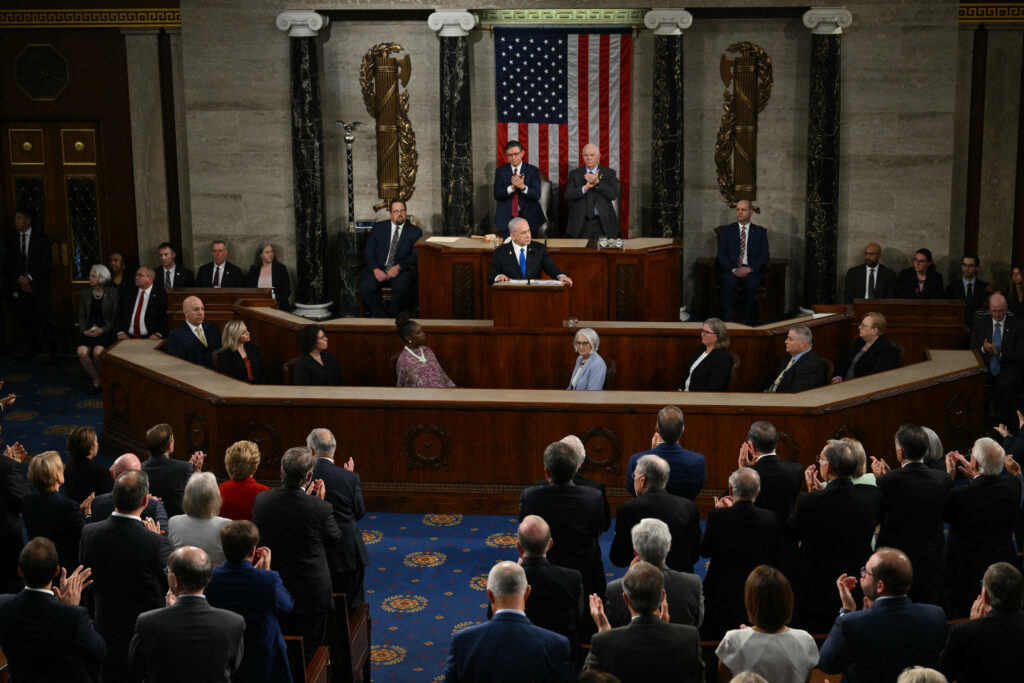Professor Aeyal Gross delivers a talk on his new book on international law of occupation in the Israeli-Palestinian conflict.
The Writing on the Wall: Rethinking the International Law of Occupation
- - July 27, 2018
On 23 July, 2018, Professor Aeyal Gross from Tel Aviv University Faculty of Law came to MEI to give a talk on his new book The Writing on the Wall: Rethinking the International Law of Occupation. A critique of abstract legalism, his book discusses a normative and functional approach towards international law concerning military occupation with specific reference to the Israeli-Palestinian conflict. In the talk, Prof. Gross highlighted several important elements that make up the book’s main thesis, namely relativity of time, existing laws concerning occupation and the application of international laws on the Israeli occupation of Palestinian territories.
Prof. Gross advocated for a jus ad approach to interpreting international law on military occupation. With that, he formulated three principles that make occupation legal: 1. that sovereignty and title is not vested in the occupying power, 2. that the occupying power is entrusted with management of public order and civil life and 3. that occupation is temporary and may neither be permanent nor indefinite. He challenged the prevailing paradigm within international law practice that occupation is merely factual by bringing up the relativity of time i.e. how time affects the applicability and interpretation of law on occupation. Consequently, Prof. Gross concluded that the Israeli occupation of the Palestinian territories is now illegal because of Israeli violation of the principles and Israeli claim of permanent settlements in the West Bank.
Prof. Gross then further elaborated on the certain complications in the Israeli-Palestinian conflict that supported his argument for the jus ad approach. He compared the legal structure in the West Bank between Israel and the Palestinians, the two main parties involved. While Israel is the legal authority of an occupier, it denies the applicability of the Geneva Conventions to its occupation of Palestinian territories, claiming the territories to be ‘disputed’ rather than ‘occupied’. This has allowed Israel to only partially abide by the conventions and commit violations like settlements and collective punishment. With regards to the Palestinians, their lack of previous sovereignty and thus proper citizenship, limiting their rights as ‘protected persons’. Thus, Prof. Gross concluded that the jus ad approach then becomes a more holistic and effective approach in dealing with questions on occupation, especially on how to prevent occupation from becoming new forms of colonialism, conquest or apartheid.
During the Q&A session, one participant asked how coverage of legal cases which relate to the violations in the occupation could help the cases themselves. Prof. Gross responded that high-profile cases tend to attract international attention which could put significant pressure on the Israeli government. As Israel wants to preserve its image as a Jewish and democratic state, the Israeli judiciary would often let the plaintiff – mostly Palestinians – win.
If you would like to read more, you can check out Prof. Gross’s latest book The Writing on the Wall: Rethinking the International Law of Occupation (Cambridge, 2017).

More in This Series
More in This Series
- Jean-Loup Samaan
- - July 11, 2024
- Aisha Al-Sarihi, Ehsan Rasoulinezhad, Jinseok Sung
- - June 20, 2024








